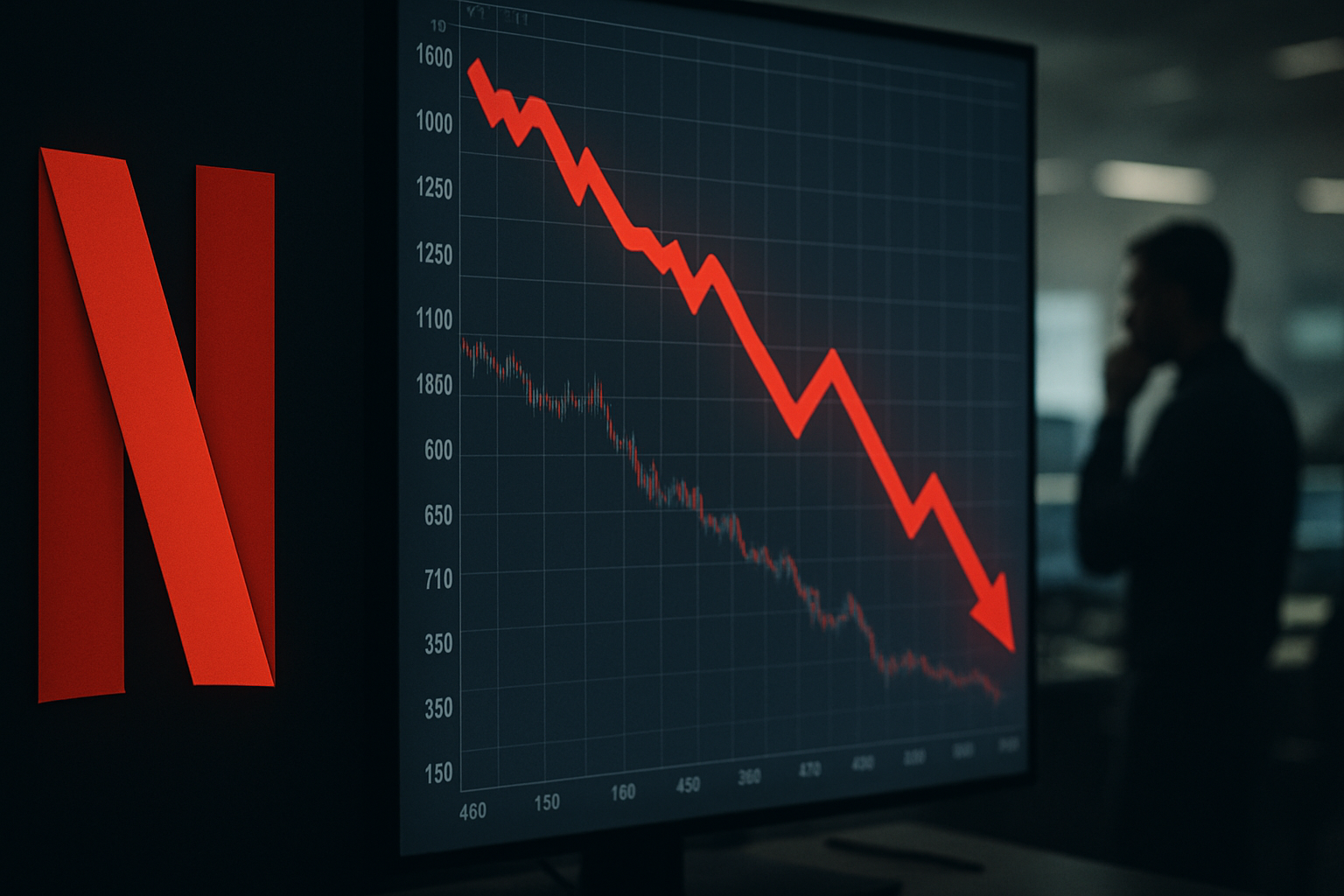Netflix shares tumbled about 6% after hours Tuesday, a stark reminder that in today's market, being good isn't good enough when investors expect great.
The streaming giant posted revenue of $11.51 billion—missing analyst expectations by the thinnest of margins—while earnings per share landed at $5.87, well short of the $6.94 Wall Street had penciled in. It's the kind of miss that wouldn't matter much for a company without Netflix's sky-high expectations, but when you're riding a 40% stock surge this year... well, the rules are different.
I've watched Netflix navigate market expectations for years now, and this feels like a classic case of a company becoming victim of its own success story. The higher they climb, the harder investors scrutinize every decimal point.
"It's the operating profit that really tells the tale here," a portfolio manager told me after the numbers dropped. "Costs are creeping up right when the market wants to see discipline."
The streaming landscape has matured—gone are those heady pandemic days when subscriber counts exploded as we all huddled in our living rooms with nothing else to do. Remember that? Now Netflix finds itself in an awkward adolescence, still priced like the growth darling it once was while increasingly expected to deliver the steady profits of a mature business.
Let's talk about that valuation for a second. At roughly 45 times forward earnings, Netflix carries a premium that's about triple the market average. That's not a company being valued on today's performance; that's a bet on tomorrow's dominance. And when tomorrow looks even slightly less rosy than expected... well, that's when investors reach for the "sell" button.
What's particularly interesting (and somewhat concerning for long-term holders) is how Netflix's costs seem to be climbing. The streaming wars have evolved from a land-grab for subscribers to a battle for margins. And that's a different kind of fight.
Look, none of this means Netflix isn't still king of the streaming hill. Their content machine remains unmatched—though having covered the industry since 2018, I've watched competitors slowly narrow that gap. Their technology platform is robust, and their global reach impressive. But markets price in perfection when a stock runs this hot.
The broader entertainment landscape isn't helping either. Viewer attention continues to fragment across platforms, including—and this is something Netflix executives probably don't want to hear—emerging AI-driven content channels that are beginning to capture eyeballs at the margins.
Is this a buying opportunity or the start of a larger correction? That depends entirely on whether you believe Netflix can grow fast enough—and profitably enough—to justify that premium valuation in a world where competition intensifies daily.
For investors who've enjoyed the Netflix ride this year, this earnings miss might be less a moment to panic and more a healthy reality check. Sometimes the most valuable thing a company can receive isn't applause but a clear-eyed assessment of where expectations truly should be set.
Because in streaming, just like in Hollywood, it's not just about making a hit—it's about making a hit that exceeds the budget and hype that came before it.
